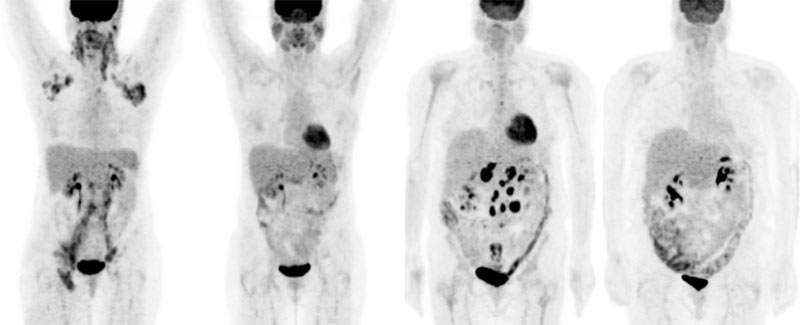By ANAHAD O’CONNOR, New York Times, January 23, 2012
Iodide Heart Scans
A common iodide contrast agent given to millions of patients who undergo medical scans every year raises the risk of thyroid disease, a new study shows.
Iodide, a form of the chemical element iodine, is widely used as a radiocontrast agent to allow doctors to see blood vessels and tissues in medical imaging tests. In a typical year, about 80 million doses of iodinated contrast agents are administered worldwide, largely for CT scans, cardiac catheterizations and other angiograms, and their use is growing as the technology spreads to developing countries.
In the new study, the first large-scale look at whether the drugs can seriously affect thyroid function, scientists at Harvard Medical School and Brigham and Women’s Hospital examined data on a large group of people who were treated at Boston-area hospitals for various conditions and followed over a 20-year period. The researchers found that the people who went on to develop thyroid disease — either overactive or underactive thyroid — were two to three times as likely to have been injected with an iodide contrast agent than those who did not develop the disease.
“We were very surprised by the magnitude of the associations,” said Dr. Steven M. Brunelli, an assistant professor at Harvard Medical School and an author of the study, which was published in Archives of Internal Medicine. “We obviously expected to find something or we wouldn’t have embarked on the study. But to see these twofold or even threefold changes in risk was more than we had expected.”
It is well known that sudden exposure to high levels of iodide can disrupt thyroid function. But even though a typical dose of contrast agent contains 90 to several hundred times the recommended daily intake of iodide, there was little research looking at its effect on the thyroid. Most earlier studies were small or focused on allergic reactions and potentially toxic side effects on the kidneys.
The latest study involved nearly 2,000 people, some who were exposed to iodide contrast agents and some who were not. All of the patients had normal blood tests and normal thyroid function when the study began.
Over the next two decades, the researchers identified patients who developed thyroid problems. An overactive thyroid, or hyperthyroidism, can cause fatigue, restlessness and trouble concentrating. In the reverse situation, an abnormally low-functioning thyroid, or hypothyroidism, can lead to problems like depression, joint and muscle pain and weight gain.
Those with thyroid problems were compared with similarly matched control subjects to see if they had a greater likelihood of being exposed to an iodide contrast during medical imaging tests. The researchers found that people who developed severe hyperthyroidism were two and a half times as likely to have been injected with an iodide contrast agent. For those with severe hypothyroidism, the likelihood was three times as great.
The authors said that the increased risk of developing thyroid problems was especially concerning because the medications are so widely used. “Even a very modest risk would be a risk incurred by tens of millions of people with very real consequences,” Dr. Brunelli said.
He said that the findings should not keep people who urgently need imaging tests that require iodide agents from getting them. “There are medical situations in which the use of iodinated contrast media is necessary and good,” he said. “Where this may bear relevance is in the context of more discretionary testing, where it’s not life-threatening or the provider is thinking, ‘I’m 99 percent sure that the patient doesn’t have this but I’m going to order the test anyway.’”
The findings “just inform the risk side of the risk-benefit equation a little more so that patients and providers can make more informed decisions,” Dr. Brunelli said. He noted that the results do not apply to M.R.I.’s, which do not use iodide-containing agents, or to dyes that are given orally and are sometimes used to illuminate the bowel.
In an editorial accompanying the paper, Dr. Elizabeth N. Pearce, a thyroid expert at Boston University School of Medicine, pointed out that doctors who order the tests should consider a patient’s overall health. People who need a CT scan but who are “particularly unable to tolerate thyroid dysfunction, such as those with underlying unstable cardiovascular disease,” for example, may need to have their thyroid activity monitored for some time after being exposed to iodide, she said.
Contact us if you are have concerns about symptoms of a thyroid problem – Call 1300 113 310 or 02 8188 2571 Thyroid Clinic Sydney.

